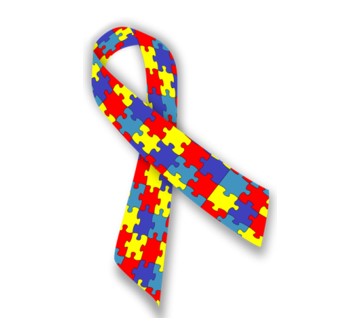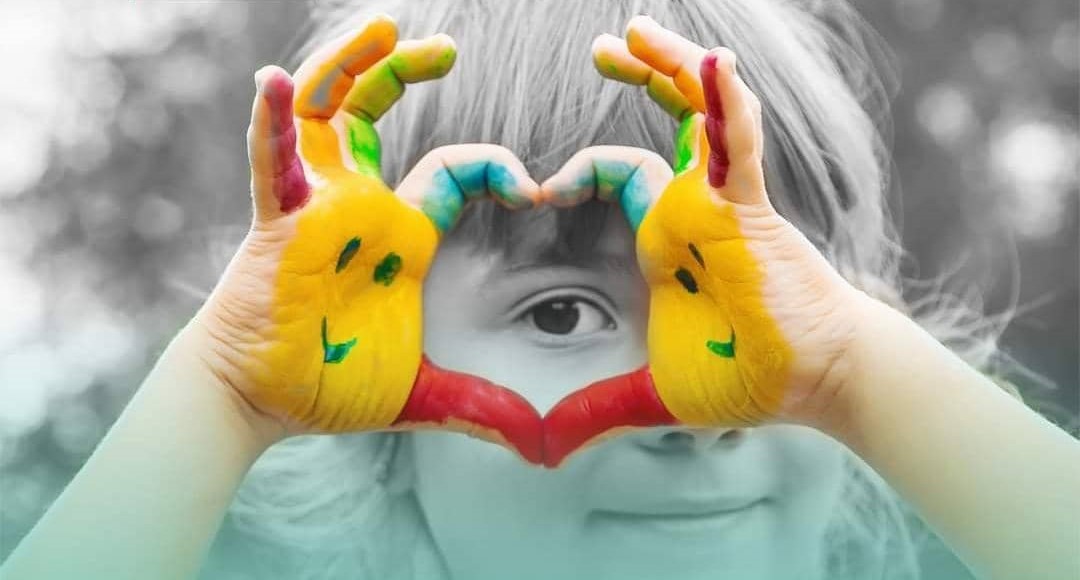Hostings

Consultants Gate LTD. looks forward to the honor of participating and contributing to the development of the autism spectrum services sector
in collaboration with our partners
QTH schools and centers – Germany/ SE Europe.
AUTISMEDI Organization– Turkey.
World In Picture Association - Bosnia and Herzegovina.
Other scientific and research bodies to participate in the provision of the following services:
Hostings

Services
First: Diagnosis, early diagnosis and diagnosis services during the embryonic stage:
Adopting international diagnostic tests ADOS, ADR-I, CARS and DISCO and training specialized national cadres to conduct them with international standards and expertise.
Adopting Griffith Mental Development Scale (GMDS-III) for children from birth to 8 years old to monitor signs of delay and early signs of autism and train pediatricians and family doctors to use them with international standards and expertise to be the first line in assessing and identifying injuries.
Training of health personnel (nurses, pediatricians, family doctors ... etc.) to monitor early signs of autism from birth and during the first two years of life under the supervision of international specialists.
Applying pregnancy investigations such as fetal bone point measurement with echo, fetal neuroimaging and audiometry immediately after birth, and circulating these protocols in the obstetric departments of hospitals and medical cities to detect before birth the possibility of developing autism symptoms in the later stages.
Second: Treatment services, multi-specialty centers, virtual clinics, diagnostic-therapeutic departments in hospitals and health centers, and lifestyle improvement:
Adopting the latest non-satisfactory (palliative) treatment methods by training cadres and equipping centers with tools and equipment under the supervision of international expertise such as:
Hyperbaric oxygen therapy (HBOT).
Magnetic stimulation therapy and direct and indirect transcranial electrical stimulation TMS –TDCS- TES.
ImmunoD therapy (CLS).
Nutrition and diet therapy, drug therapy with antibiotic protocols and heavy metal reagents.
Cognitive behavioral therapy.
Positive behavior support therapy Drama therapy and play therapy.
Music therapy... etc.
Equipping and managing multidisciplinary centers - preparing it to provide comprehensive services ranging from early diagnosis and prenatal to treatment, training, psychological support, rehabilitation, speech and skills development to the late stages of old age (please see the attached integrated center project).
Managing and developing interactive virtual clinics and linking them with international specialists in various fields related to autism.
Establishing, equipping and managing therapeutic diagnostic centers - Medical Diagnostic Treatment Centre - that provide integrated diagnostic and medical treatment services for autism spectrum disease and provide them with the necessary cadres.
Third: Organizing and managing international conferences with the highest educational and training standards and internationally accredited certificates and various specialties of autism and providing online training meetings accredited with CPD certificates:
Hosting and implementing a global conference on autism, similar to what is being implemented as the World Autism Organization Conference, managing and organizing this event, starting from the rehabilitation file to the implementation of all stages, in a way that ensures strong light on the Kingdom's leading role in the field of supporting autism, the services provided, service projects and the national strategy followed for this goal, which is in line with the Kingdom's Vision 2030 under the leadership of His Highness Crown Prince Mohammed bin Salman.
Virtual hosting through remote communication technologies for IMAM: International Multidisciplinary Autism Meeting – IMAM Online Training courses in cooperation with partners (autism centers and universities).
Fourth: Rehabilitation, Education and Integration:
Adopting various rehabilitation programs within the school environment and supportive post-school sessions and training educational staff through specialized workshops.
Adopting academic programs and training their target audiences, such as the TEACCH program - to teach children academically and the EarlyBird program to teach parents and supervisors about ways to communicate and interact with children under the age of five years and how to behave at home with different situations.
Setting general and common standards for integration and creating the classroom environment to suit the integration process by conducting a risk assessment and equipping rooms or a multisensory room to control anxiety, bouts of violence and anger and modify behavior with training teachers to use them, and enhancing the role of the shadow teacher for the early stages of integration and training teachers of this category.
Enhancing the role of the psychosocial worker in the school and training him on methods of dealing with cases of autism, starting from the first observation and the use of ABC behavior chart - all the way to following up his psychological, mental and physical development during the study.
Strengthening the role of the learning difficulties specialist in schools and coordinating with the class teacher and the shadow teacher to follow up the child educationally.
Supporting families psychologically and morally and linking school and home to ensure the success of the educational process and obtain the maximum benefit.
Fifth: Skills and Capacity Development:
Adopting methods of capacity development and rehabilitation in the fields of (speech, visual communication, sensory integration, psychomotor, learning life skills, behavior modification, cognitive behavioral rehabilitation, drama and music... etc.) and training specialized cadres through specialized workshops.
Organizing specialized workshops and academic training programs through international specialists and international accredited certificates in the following specialized clinical approaches:
*ABA - Apply Behavior Analysis
*PECS Picture Exchange Communication System
*Makaton sign language
*CBT Cognitive Behavior Therapy
*PBS Positive Behavior Support
*Drama Therapy
*Low Vision management for Autism
Sixth: Vocational training, linking to the labor market and social life, and caring for the injured in old age
Within the framework of continuous support for patients with autism spectrum, attention comes to the stage of their professional rehabilitation to become active members of their communities and able to secure the bulk of their material and life needs, and accordingly, we offer through our company Consultants Gate - in cooperation with our specialized partners - an integrated project with international expertise and cadres to cooperate and interact with local cadres to establish a vocational training and rehabilitation center for all disabilities, including autistic patients Vocational Training College - and link it to international programs such as the British Council rehabilitation program The professional, which determines the capabilities of the person and his qualifications and works to develop his skills and link him to the labor market through a group of supportive economic partners and then unleash the capabilities of the person in the labor market directly to become an active member in building society.
We also provide, through our global partners, community support and rehabilitation services to prepare the community and the surrounding environment, build social skills, socially relationships of the autistic person, and meet his life needs in daily dealings and local services, leading to old age and how to deal with their various needs.
Seventh: Supporting families, raising their awareness and working with them and through them:
Families are the first pillar in building any strategy or plan to support autistic patients and they are the most able group to describe the needs and activate the necessary laws and services, and therefore we go in our institution and through a team of international experts and in partnership with local expertise to direct awareness through focused workshops that target parents, as well as providing counseling and psychological support services to them and involving them in formulating any proposals or strategies to activate and improve the services provided to them.
Eighth: Community centers, mobile services for rural areas and helplines:
One of the integrated services and projects owned by the company and its partners from organizations and scientific bodies - also the project of educational and recreational community centers - which covers an administrative area consisting of several neighborhoods, where it works to link the civil society, schools and state institutions in that area and is concerned with ensuring the provision of psychological, educational and recreational services to the children of the neighborhoods free of charge, including services directed to autistic patients and their families of psychological and awareness support.
The hotline service also provides counseling and assistance in questions and consultations for autistic children around the clock and linking callers to the required services, and the project does not neglect to provide diagnosis, treatment, awareness and support services within the framework of respect for customs, traditions and customs to the most needy and economically weaker areas (remote areas) through trained and equipped mobile teams under the supervision of specialists and the management of the nearest community centers.
Ninth: Training national cadres and providing short training programs, specialization and rehabilitation program, and internationally accredited university academic programs / diploma and specialized master's degree:
Through cooperation with partners, the company provides short specialization programs, diploma and master's programs accredited internationally (from the United Kingdom) within the following description:
MSc & Diploma:
MSc in Autism (2 years part time practical based study).
MSc in Behavior Therapy (CBT, ABA, PBS).
MSc in Learning Difficulties (Dyslexia, ADHD, Dyscalculia, Dysgraphia & Dyspraxia).
Diploma in co morbidities in Autism.
Diploma in Neurodevelopment Disorders: Early diagnosis and early intervention.
Diploma in Diet and in Nutrition in Neurological Disorders.
Diploma in Non-Invasive Treatment of Developmental Disorders.
Diploma in Developmental Coordination Disorder/Dyspraxia.
Diploma in for blindness and visual impairment specialist.
Short courses and training packages (CPD courses):
Augmentative and Alternative Communication in children with ASD
Skills for independent Living program
TEACCH program for ASD children
Techniques and Methods for Developing Social Skills in Children with ASD
Autism Diagnosis and Early intervention Tools (ADOS, ADR-I and CARS)
Early Star Denver Model for Children with Autism training package
Picture Exchange Communication System for Autism training package
Also, Consultants Gate through its academic team and international partners to establish similar programs with the same international standards and experiences to participate with universities and institutes according to the need and capabilities available.
Tenth: Building national strategies and plans to develop the sector with national expertise and global supervision.
Setting national standards for the work of autism institutions and centers and the participation of all events affecting the lives of autism spectrum patients and their families in setting these standards and controls and including all results and recommendations in any upcoming disability law or plan that is developed in a way that guarantees rights and duties and the highest degree of benefit for people, their families and society in general.

Server IP: 10.70.0.122
Request IP: 52.167.144.214
